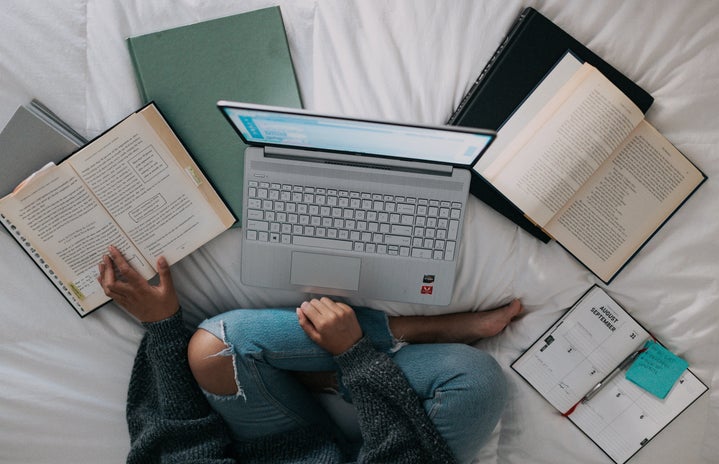As we all already know, finals season is upon us. The days before Thanksgiving break somehow feel like the middle of the semester, only for the two weeks following the break to pass by at supersonic speed. These weeks are often packed with deadlines, whether they are project submissions, exams right before finals or huge, tedious assignments. Then, we’re tasked with tackling the beast known as studying for finals. Amidst all of this, it can feel like you’re swimming in an endless sea of work. How is it, then, that we can prioritize our health when consumed by all these tasks? Of course, the easy answer is to say that we have to take breaks. Breaks are essential to reset your mind and allow all the stress building up to dissipate. But that’s when we’re faced with the big question: how do you take a break?
To understand how to take a break, we first need to dive into why we need breaks. Being overwhelmed can increase stress, which activates the release of a hormone known as cortisol. This hormone leads to the impairment of basic functions, such as picking out relevant details from a continuous stream of information. Stress can also cause the overactivation of the amygdala, a part of the brain that controls the “fight-or-flight” response and acts as a filter before information can reach our prefrontal cortex. For us to learn and remember, information must be processed in the prefrontal cortex. When the amygdala gets overactivated, though, it filters out all information, so nothing actually gets processed in our minds. This can be quite frustrating when studying for finals since we can’t retain the content we need for the exam. To perform at our level best, we need to maximize our attention span and memory retention, which can only happen when we keep our stress levels low. The best way to do this is to take breaks, but not just any breaks—it’s important to take the right kind of breaks designed to lower stress effectively.
You may be wondering how some breaks can be the “wrong kind.”. Some breaks can actually make you more unproductive or feel worse. Breaks such as scrolling through social media, eating junk food, watching a YouTube video or taking extremely long naps can derail us even more. Studies have shown that taking a break on your phone can lead to taking 19% longer to finish a task and completing 22% fewer tasks in a given timespan compared to taking more effective breaks. These activities can leave your attention and memory retention even worse off than before! There are ways, though, to take mental breaks that recharge your brain while reducing stress instead of hindering its focus.
Some effective breaks include taking a short walk outside, meditating, engaging in a quick workout and preparing and eating a healthy snack. If these don’t sound like great options, one of my personal favorite breaks is to have a small dance party (I may or may not have a Taylor Swift playlist for this exact purpose). Sometimes, I choose to spend my break hanging out with my pet parakeet. Whatever the break might be, the most important aspect is to do a relaxing or fun activity that isn’t addicting. Also, give your brain a break! Reading a news article that stimulates the same part of your brain being overwhelmed isn’t going to allow it to recharge.
Finals season can seem less overwhelming when you master the art of taking a break. It’s extremely essential to prioritize your mental well-being during this stressful time, but while that’s easier said than done, a break done well can only help.


